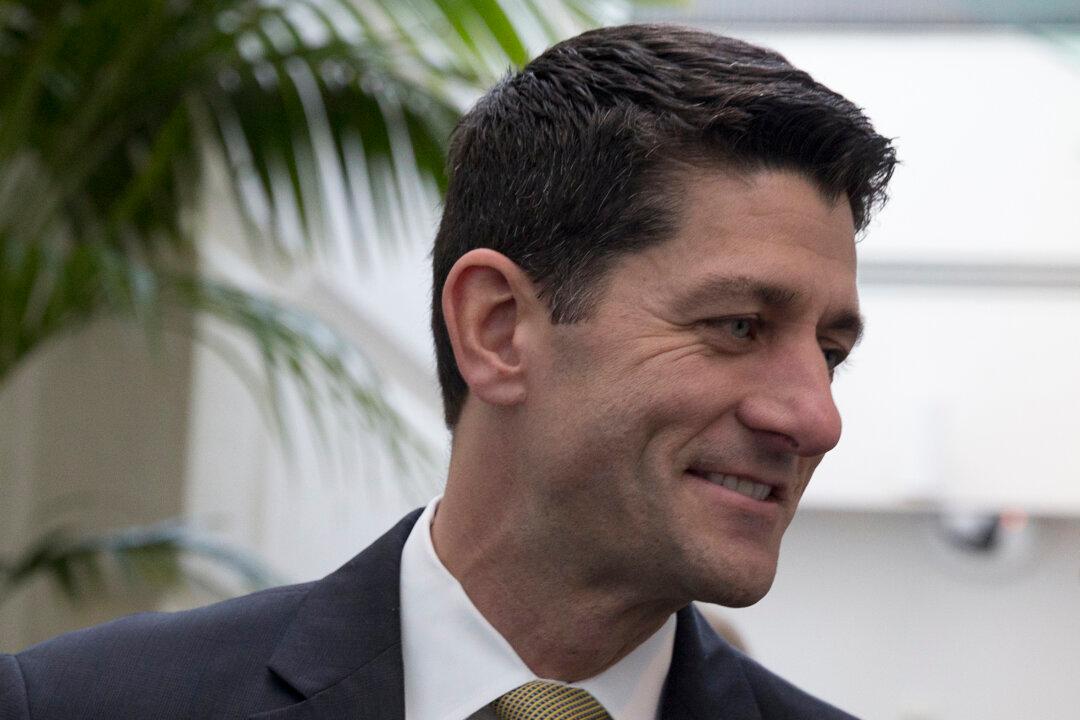WASHINGTON—Wisconsin Rep. Paul Ryan says he’s got to have unity from divided House Republicans before he will serve as their speaker—a tall order as the split between GOP pragmatists and hardliners all but paralyzes Congress and roils the presidential race.
Ryan’s message to his colleagues: Embrace him as their consensus candidate by week’s end or he won’t seek the job, plunging the House into deeper chaos with deadlines on an unprecedented government default and the budget fast approaching.
It’s a big “if” for a House GOP that’s careened from one crisis to another in recent years, with a compromise-averse band of conservative hardliners forcing a partial government shutdown two years ago, ultimately driving current Speaker John Boehner to announce he'll resign and then scaring off his No. 2.
Boehner is moving quickly to try to resolve the issue, telling Republicans Wednesday morning that the GOP will meet next Wednesday and vote on a candidate to replace him. The full House would then choose its new speaker on Thursday—if all goes according to plan.
Meanwhile, Ryan, the GOP’s 2012 vice presidential nominee, has been dragged into seeking a job he never wanted. As he announced late Tuesday that he would seek the speakership, Ryan made clear he would do so only with conditions. He wants the endorsement of the major caucuses of the House, including the hardline Freedom Caucus.
That’s the group whose threats against Boehner pushed him to announce he would resign by month’s end and forced Majority Leader Kevin McCarthy to abruptly drop his campaign to replace him.
Members of the Freedom Caucus quickly expressed reservation about some of Ryan’s conditions for pursuing the job, including his insistence on cutting back on the responsibilities to spend time with his wife and three school-age kids.
“No other speaker candidate came in and said here’s the list of my demands, either meet those or I’m not going to do this,” said Rep. Tim Huelskamp of Kansas. “Speaker’s a big job. And it’s not a 9 to 5 job. So there are a lot of questions to be answered.”
“There is a plethora of candidates for speaker of the House out there who have the time necessary to do the job,” said Rep. Mo Brooks of Alabama.
Boehner said he was fairly confident the various factions would coalesce around Ryan.






